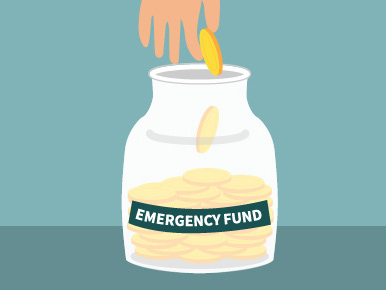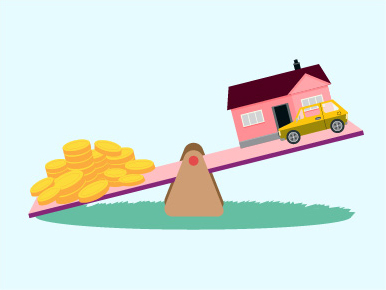Income protection insurance in New Zealand is designed to replace part of your regular income if you’re unable to work due to illness or injury. You can’t usually cover 100% of your income — most policies cover up to around 75%, sometimes less after tax and offsets. The idea is to give you a financial safety net while still keeping an incentive to return to work.
How much of your income can you cover?
Unlike life insurance (which pays out a lump sum) or trauma insurance (which is triggered by specific conditions), income protection is about replacing a portion of your income. In New Zealand, most policies let you insure up to a set percentage of your pre-tax income - typically up to 75%.
Why not 100%? The idea is to strike a balance. By covering a portion rather than the full amount, insurers help make premiums more affordable and reduce the risk of people choosing not to return to work when they recover.
Offsets and adjustments
It’s worth knowing that the amount you actually receive may be adjusted by offsets. These can include:
- ACC payments (if your inability to work is due to an accident).
- Other insurance benefits (e.g. trauma cover or sick leave payouts).
- Employer support (like extended paid leave).
This means that even if you’ve insured 75% of your income, your actual payout might be reduced depending on what other support you’re already getting.
Factors that influence how much you can cover
1. Your income level
Policies are usually based on your pre-disability income (what you were earning before you stopped work). The higher your income, the higher the maximum benefit you can insure — up to the policy’s percentage cap.
2. Benefit period
This is the length of time you’ll receive payments for if you can’t work. Options can range from a couple of years to all the way up to retirement age (65 or 70). Longer benefit periods typically mean higher premiums, but they also give you more long-term protection.
3. Waiting period
This is how long you’ll wait after you stop working before your income protection benefit kicks in. Common waiting periods are 4, 8, or 13 weeks. A shorter waiting period means you start receiving payments sooner, but it usually comes with a higher premium.
4. Your occupation
Some jobs are considered higher risk than others, which can affect how much cover you can get and how much it costs. Office workers may find it easier to get cover compared to physically demanding or hazardous roles.
5. Agreed vs. indemnity value policies
- Agreed value policies (less common now) lock in the benefit amount when you take out the policy.
- Indemnity value policies base the payout on your income at the time of claim.
Most policies in New Zealand today are indemnity-based, which means your payout reflects your actual earnings when you make a claim.
Common misconceptions
“I can cover 100% of my income”
No - income protection is usually capped at around 75%. This ensures policies remain affordable and that there’s still an incentive to return to work.
“I’ll always get the maximum benefit”
Not necessarily. Offsets (like ACC) and how your income is calculated at claim time can impact what you actually receive.
“It covers redundancy or job loss”
Income protection covers illness or injury — not redundancy or general unemployment. That’s a common misunderstanding.
The role of ACC in New Zealand
Because New Zealand has ACC, injuries caused by accidents are already partly covered. This means income protection is especially important for illnesses, which ACC doesn’t cover. For example, if you’re diagnosed with a condition like cancer, ACC won’t step in - but income protection could provide vital financial support.
Disclaimer: Please note that the content provided in this article is intended as an overview and as general information only. While care is taken to ensure accuracy and reliability, the information provided is subject to continuous change and may not reflect current development or address your situation. Before making any decisions based on the information provided in this article, please use your discretion and seek independent guidance.










